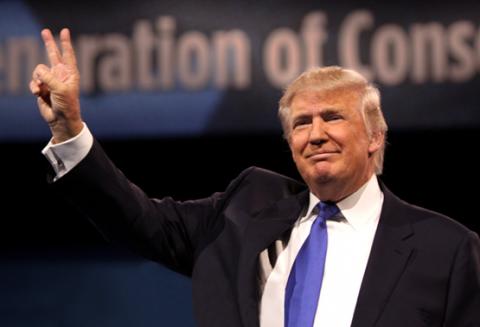
In the run up to the South Carolina Republican presidential primary on February 20, polling shows Donald Trump in the lead and Ted Cruz appears most likely to finish second or perhaps move ahead of Trump with a closing surge. Establishment Republicans Marco Rubio, Jeb Bush and John Kasich are fighting each other to finish in third.
The fact that the GOP field remains dominated by two candidates perceived as “outsiders” is probably seen by grassroots conservatives as good news. After all, the Republican establishment has made no secret of its loathing for Cruz and Trump. Both of them have gained support at the expense of establishment candidates, who are struggling to stay in the race.
The conventional wisdom to this point says Trump and Cruz are both conservative, both unacceptable to the establishment, and either would enjoy strong conservative support heading into the general election this November. There’s just one problem with the conventional wisdom: It is very often wrong.
Concerning Donald Trump, conservatives paying attention in the aftermath of the January 14 GOP debate in Charleston, South Carolina, saw Ted Cruz show just how wrong the conventional wisdom can be. After blasting Trump’s “New York values” in the debate, Cruz didn’t back down in the face of media criticism. Instead, he immediately doubled down.
Campaigning in South Carolina two days after the debate, Cruz said in a direct reference to Trump, “if you are offended at my pointing out how much the failed policies of Hillary Clinton, [New York Governor] Andrew Cuomo and [New York City Mayor] Bill de Blasio have hurt New Yorkers, then which of those policies do you agree with? Given the fact that for much of his life, Donald was financially supporting those politicians, writing checks to Hillary Clinton, writing checks to Andrew Cuomo, it’s a fair inference that he supports their policies.”
Cruz went on to note his surprise that Trump objects to the idea of New York values because “he’s the one who laid out this analysis” in a 1999 TV interview with the late Tim Russert of NBC News. In that interview Trump credited his liberal position on certain issues to the fact he is from the solidly liberal state of New York. Cruz also pointed out his differences with Trump over Second Amendment and property rights.
For most conservatives, “New York values” don’t need any explaining. Hanging that millstone around Trump’s neck raises a central point that Cruz perhaps should have brought up sooner: Is Donald Trump a fake conservative? The paper trail of Trump’s support for liberals like Hillary Clinton is a long one. What’s more, thanks to our friends at Conservative HQ, it’s clear now that Trump’s longtime promotion of “adult entertainment” in his gambling casinos shows him to be, in the words of Conservative HQ, “the poster boy for debasing American culture.” There’s nothing conservative or anti-establishment about that.
Rush Limbaugh on his show January 18 brought up something else for conservative voters to consider. Limbaugh told his radio audience, “I think Trump is making a strategic error in the way he criticizes Cruz.” Specifically, Mr. Limbaugh objects to Trump’s adopting “left-wing, liberal language” in his attacks on Cruz. He went on to warn that “whenever a Republican or conservative attacks a fellow Republican or conservative using the same language or the same approach that Democrats and liberals would, that’s a huge red flag.”
That same day, the Hot Air blog chimed in with a quote from a “Republican member in [House Speaker] Ryan’s inner circle” who asked to remain nameless to speak freely about the Cruz-Trump battle. This Republican said, “If you look at Trump’s actual policies, they’re pretty thin. There’s not a lot of meat there.” If Trump were to win the Republican nomination, he would “be looking to answer the question: ‘Where’s the beef?’ And we will have that for him.”
In other words, at least some establishment Republicans prefer Trump for President because it would be easier for the establishment to hold sway over a President Trump as opposed to, say, a President Cruz. So does that make Trump a fake outsider in addition to a fake conservative? That’s a question late-deciders in the South Carolina primary and beyond need to think about carefully. That establishment Republicans are willing to hedge their bets with Trump says a great deal, and it’s something real conservatives should know before they cast their votes.